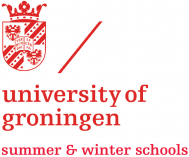12 July 2024
on course website
Re/Making: Ecologies of Care in Art and Heritage
Re/Making: Ecologies of Care in Art and Cultural Heritage focuses on sustainable approaches to production, handling and exhibition of artworks and cultural artifacts. The summer school examines the comprehensive integration of ecological considerations into curatorial work and the conservation of cultural heritage. Together we will examine the various relationships between art and ecology and learn and question how the diverse ways of dealing with works of art can be conceptualized and implemented as environmentally compatible processes. This relates primarily to the creation of artworks, their preservation and maintenance, and the exhibition of these objects. The Summer School thus addresses an essential field of expertise for future curators, site managers, conservators, architects and artists. It explores the complex interrelationships between the cultural sector and ecological challenges.
Course leader
Tino Mager, Ren Ewarts, Faculty of Arts
Target group
This summer school is designed for museum curators, restorers/conservators, heritage/site managers, art historians , landscape historians, architectural historians, architects, artists.
It is expected that the participants have a sufficient command of the English language to actively participate in the discussions and to present their own work in English.
Course aim
After this course you will be able to:
- make informed decisions regarding sustainable exhibition making and heritage preservation
- communicate across disciplines on sustainability strategies in the art and heritage sector
- think critically about different approaches to heritage care
- participate in the academic discourse onecologies of care in art and heritage
Credits info
3 EC
Preparation: 34 hours
Lectures: 35 hours
Presentation: 15 hours
Upon successful completion of the programme, the Summer School offers a Certificate of Attendance that mentions the workload of 84 hours (28 hours corresponds to 1 ECTS). Students can apply for recognition of these credits to the relevant authorities in their home institutions, therefore the final decision on awarding credits is at the discretion of their home institutions. We will be happy to provide any necessary information that might be requested in addition to the certificate of attendance.
Fee info
EUR 600: including programme elements, lunch, lodging
EUR 250: including programme elements, lunch
on course website

